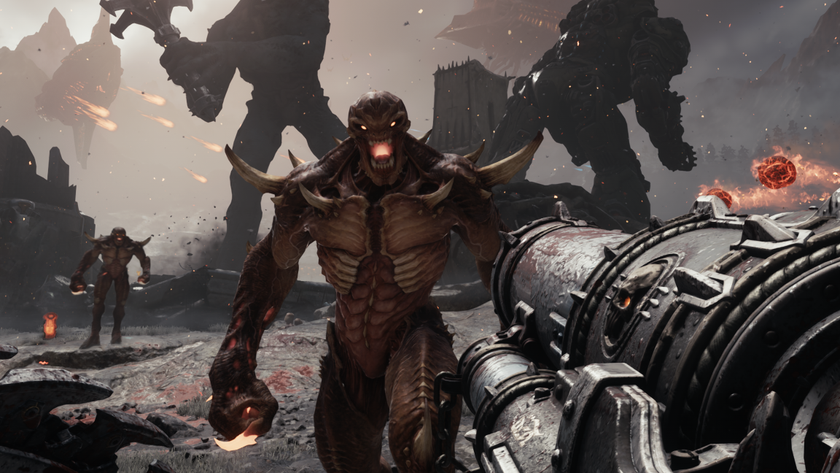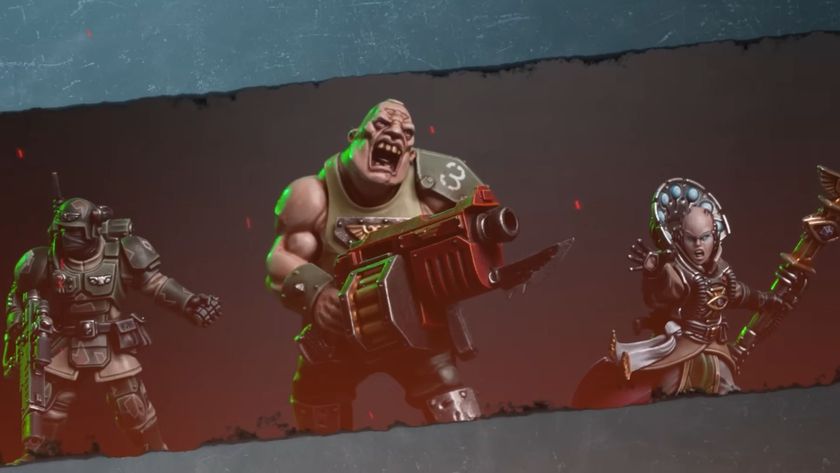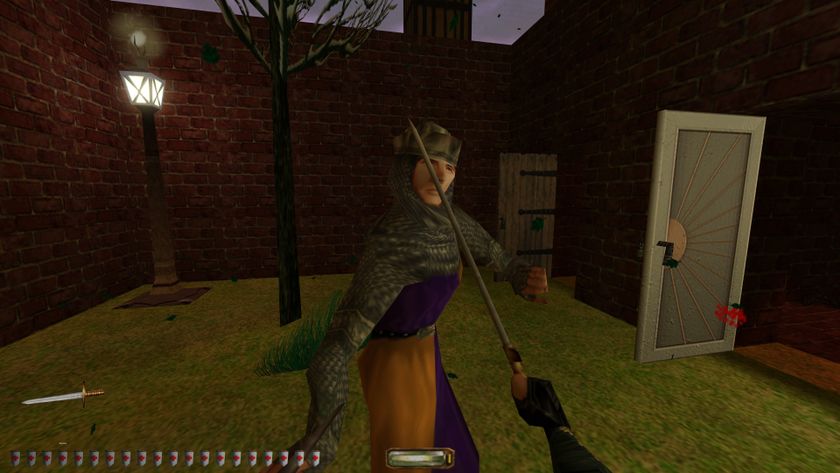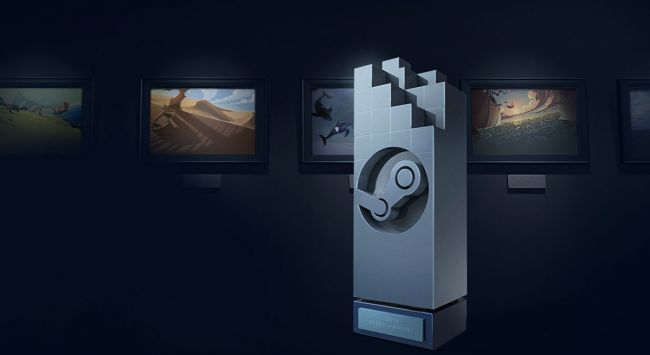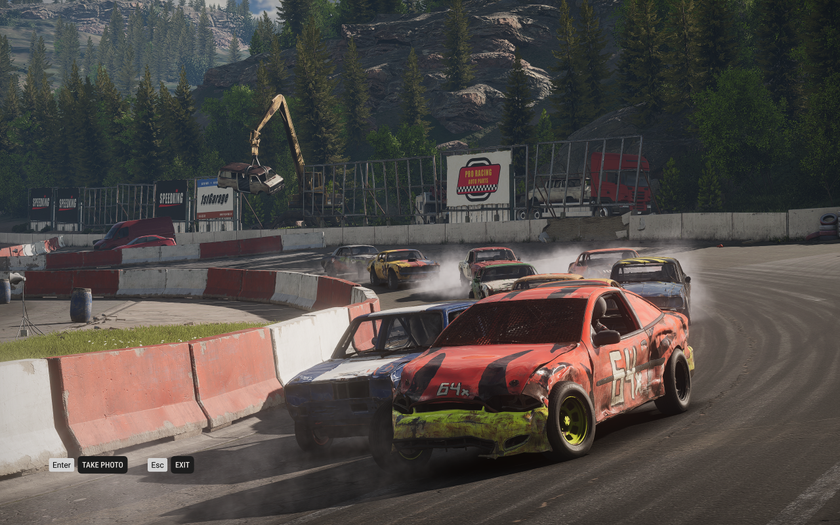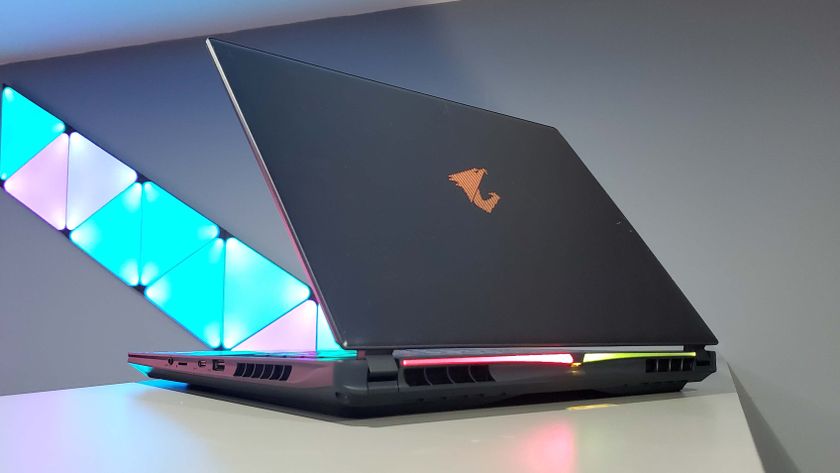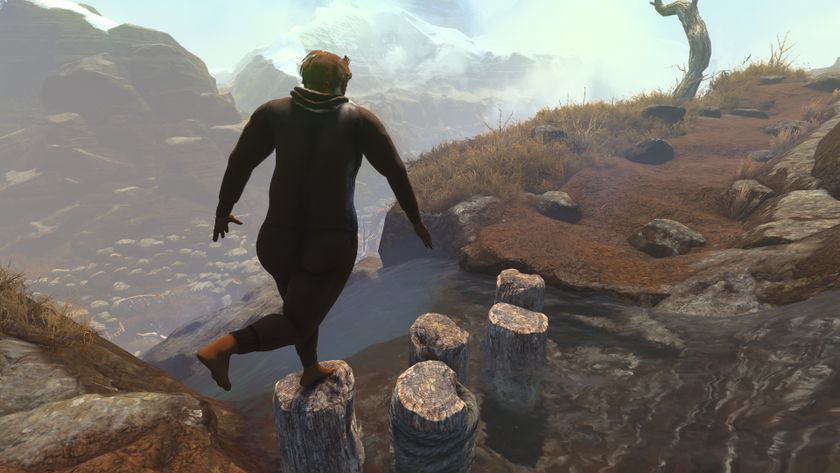Everything you need to know about EVE Online's next expansion (and beyond)
CCP Games talks specifics about what to expect this fall and early 2018.
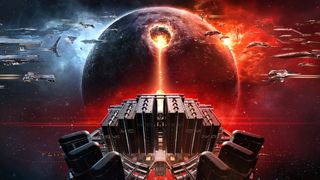
I've been attending EVE Vegas for three years now, and I can't remember a time players were more optimistic about the changes CCP is making to the nearly 15-year-old MMO. Last year, the Citadels expansion introduced a major (and contentious) shakeup to how EVE's players build their kingdoms and wage war. The upcoming Lifeblood expansion is due out on October 24, but CCP also gave us a glimpse of what's to come in December and early 2018. The proposed changes we saw have made this starfaring community very excited again.
Wars in EVE Online are about to get a lot more explosive.
As CCP Games CEO Hilmar Veigar Pétursson said during his presentation, "EVE is growing again." Despite years of declining numbers, EVE Online seems to be finding a new rhythm that works and its concurrent players are up 18 percent over last year. That growth can be largely attributed to EVE Online's new free-to-play option, which lets players explore space with a limited number of available ships and skills. As I already wrote, that program is likely going to be expanding dramatically come December as free-to-play players are given access to battleships and battlecruisers—the backbone of a lot of EVE's warfare.
But let's look at what's coming at the end of October when Lifeblood launches. For a detailed look at Lifeblood, you can check out EVE Updates, which also details smaller additions like new skins and ship remodels. But here are the biggest changes coming to EVE in October and beyond.
He who controls the moon goo
Perhaps the biggest feature in Lifeblood is a shakeup to the central industry that fuels EVE Online's massive player-driven alliances. Colloquially referred to as 'moon goo,' this bundle of different resource types is passively harvested from moons using deployable starbases which, with the release of Citadels last year, will become obsolete. The current system is one of the oldest in EVE Online, dating back to its early years. It's so hopelessly esoteric and complex that it's not worth explaining. Trust me.
Think of it like a World of Warcraft raid night, except everyone is getting drunk and shooting rocks (or each other).
The new system, however, turns passive moon mining into a scheduled group activity that entire corporations can work together on. Think of it like a World of Warcraft raid night, except everyone is getting drunk and shooting rocks (or each other). In Lifeblood, two new structures called refineries are being introduced. These operate in a similar manner to EVE's Citadels—the Death Star-esque space ports that players can now build and deploy to help defend their space. The big difference is that refineries are industrial facilities where resources can be processed into valuable materials and moons can be mined.
Aside from generic mineral processing, refineries can be deployed near minable moons and fitted with a special module that will, periodically, blast a massive chunk out the moon's surface. That chunk is then extracted to the refinery and exploded to create a nearby asteroid belt that the refinery's owners can then harvest for moon goo.
What's excellent about this new system is that it becomes a conflict driver. Alliances will need to carefully coordinate when to detonate the moon chunk so that they have enough bodies to help with the mining operation. Likewise, combat pilots will need to be on alert in case a rival alliance decides to attack during the mining operation. It weaves mining, one of EVE's most boring activities, into a system that can lead to epic fights as others try to disrupt your corporation's industry. Players can also choose how often these operations happen and that dictates the size of the asteroid belt. If a bigger corporation only does it once a month, they'll need a lot of helping hands to mine every asteroid, but smaller corps can detonate the chunk weekly, making it more manageable for only a few players.
The biggest gaming news, reviews and hardware deals
Keep up to date with the most important stories and the best deals, as picked by the PC Gamer team.
It's an exciting change for many of EVE's corporations because moon mining is also being introduced to hi-sec and wormhole space as well, giving everyone access to a powerful form of industry. It's such a major change that the audience virtually exploded with glee when it was announced.
Eve players get really excited about the smallest of changes. pic.twitter.com/AGaDXAaf3LOctober 6, 2017
Resource Wars
Aside from mining, another boring aspect of EVE's PvE content is missions. These highly repeatable quests are a grind to slog through and don't offer much in the way of challenging combat scenarios anywhere on par with the thrill of fighting a human pilot. For years CCP has been trying to change that by investing in smarter, more human-like AI, like the Bloodraider Shipyards it introduced earlier this year. Resource Wars is the next evolution of that AI, but delivered in a much more accessible way so even brand new players can participate.
In a sense, Resource Wars are like EVE's take on modern MMO dungeons. The NPC empires of EVE are opening up their top secret asteroid fields to player pilots in order to fend off invasions by NPC pirate factions. Players can form a fleet and enter these sites either as soldiers or as miners, and each will have specific objectives they have to complete.
Miners will have to mine ore and deliver it to nearby haulers to be shipped off. Meanwhile, combat pilots will have to protect them from invading bands of NPC pirates. CCP says Resource Wars are designed to be a short-session co-op experience, and it's aimed squarely at getting new players into a more dynamic form of PVE than mission running or normal mining (which is boring as hell to do alone and in the relative safety of high-security space).
Perhaps the best thing about it, however, is that it'll finally make mission running a more social experience—which is what makes EVE awesome and is always lacking in its PVE content. Hi-sec miners and soldiers will have good reasons to coordinate and work together to survive Resource Wars sites.
Pirate invasions
A less structured form of PVE coming in Lifeblood is Forward Operating Bases, where two pirate factions will begin randomly invading high-security systems and setting up starbases and raiding the local populace. The bases themselves are hidden, but you'll know there is one nearby as roaming fleets of pirates will begin mining nearby asteroid belts or attacking players randomly—even if they're sitting in space AFK.
Players can thwart the invasion by using combat probes to scan down the Forward Operating Base and launching an offensive. The bases are designed to handle between 10-50 players, and, like the Bloodraider Shipyards, advanced enemy AI will field fleets designed to dynamically counter the ships you bring to the fight. For new players too intimidated to jump into one of the many null-sec player empires and experience full-scale fleet combat, this is a fantastic (and relatively safe) introduction to what EVE is all about.
This is an ongoing evolution of EVE Online's NPC pilots behaving more like actual players. CCP has warned that pirates will even shoot at vulnerable player-owned structures in high-security space, so pilots will need to be a lot more vigilant in defending their turf when pirates have set up a FOB.
A major overhaul to Citadels
When the Citadels expansion was first announced, its slogan was "Build your dreams, wreck their dreams." But EVE players quickly realized the whole wrecking part of that equation was boring as hell. The Citadels are too easy to build and way to hard to destroy. It's resulted in a rather stagnant year for EVE as alliances have struggled to find the motivation to kick down their enemies' sandcastles. Right now, thousands of small Astrohaus Citadels are scattered across the systems of New Eden, many abandoned but still standing because everyone is too lazy to blow them up.
But CCP has listened. During the EVE Vegas presentation, they announced a series of sweeping changes that had the crowd cheering with excitement. These changes won't happen until early next year, but arguably represent the most important shift to happen in EVE Online since Citadels were introduced. Essentially, if a Citadel is not actively defended by players, it'll be much easier to destroy.
Essentially, if a Citadel is not actively defended by players, it'll be much easier to destroy.
Looking closer, Citadels will soon be vulnerable to attack 24/7. When their shields are hit with enough damage, they'll enter a reinforced invulnerability mode. The owner of the Citadel selects a time when the shield comes out of its reinforced mode, typically when they'll have the most pilots online to help defend it. After the shield is reinforced, it becomes vulnerable again during that selected time period between 24 and 48 hours later. This is where the second phase of the battle begins to destroy the Citadel's armor and remaining shields.
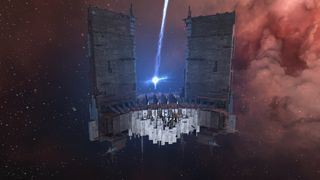
Once the armor is destroyed, the Citadel again enters a reinforcement period that ends after a certain number of days depending on what zone of space it is in (seven days for hi-sec, three days for null and low-sec, and one day for wormhole space). However, one important change is that this second reinforcement period only kicks in if the Citadel has service modules equipped that use fuel (which means it's actively used by players). If not, the station is deemed abandoned and players can destroy it without the pain of waiting up to a week. Abandoned Citadels will also have less damage resistances too.
The fight to destroy these Citadels between two active forces is also getting a lot more exciting. Citadel void bombs that deplete enemy ships' capacitors (think of them like an EMP blast that disables electronics) are being removed entirely. This allows attacking fleets to fit a much greater variety of ships instead of focusing on ones that aren't reliant on capacitor energy. Replacing void bombs will be a whole host of new doomsday weapons, tech 2 variants of Citadel guns and new defensive modules. Put simply: Attacking and defending Citadels will be a lot more interesting.
For casual and non-EVE players, these changes might seem way too granular to really matter, but the implications are huge. Wars in EVE Online are about to get a lot more explosive. Naturally the players are extremely happy about this. Along with the changes to the free-to-play program coming in December, the next year of EVE Online looks promising for veterans, new players, and those who just like reading about it.
With over 7 years of experience with in-depth feature reporting, Steven's mission is to chronicle the fascinating ways that games intersect our lives. Whether it's colossal in-game wars in an MMO, or long-haul truckers who turn to games to protect them from the loneliness of the open road, Steven tries to unearth PC gaming's greatest untold stories. His love of PC gaming started extremely early. Without money to spend, he spent an entire day watching the progress bar on a 25mb download of the Heroes of Might and Magic 2 demo that he then played for at least a hundred hours. It was a good demo.
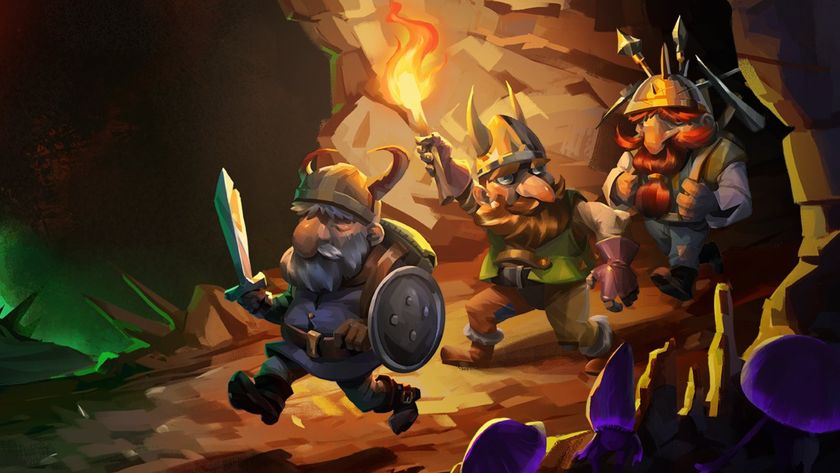
Dwarf Fortress dwarves are 'more human than human,' creator says: 'They're allowed to embody bigger emotions. They're allowed to make bigger mistakes. They're allowed to do anything'
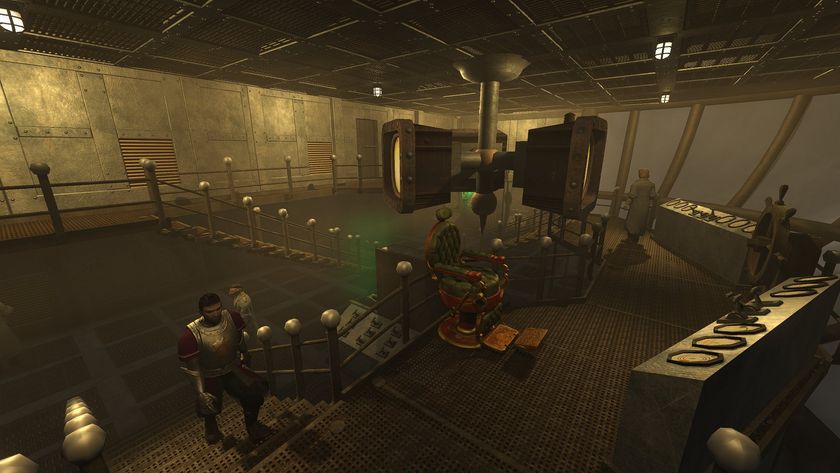
After 16 years, The Dark Mod finally has guards as perceptive as in Thief: 'The days of seeing knocked-out AI in the middle of a bright spotlight get ignored are over'


